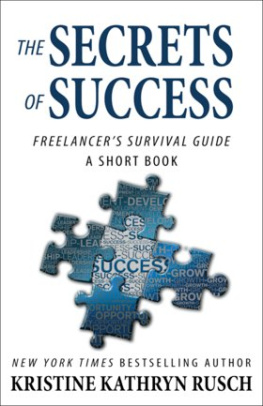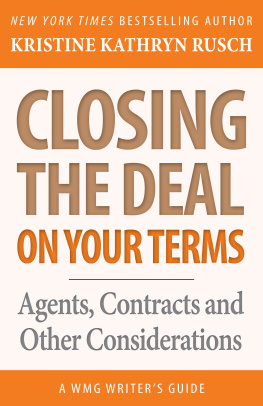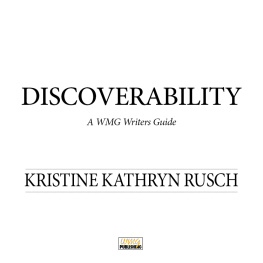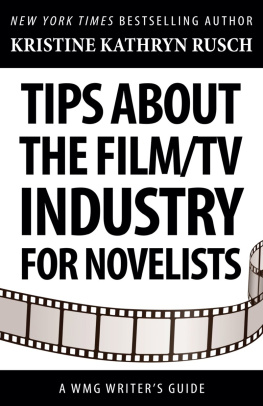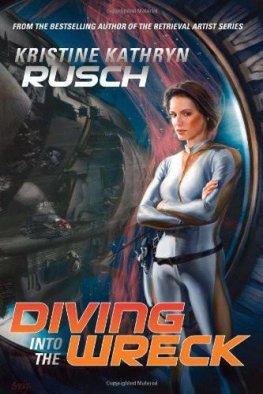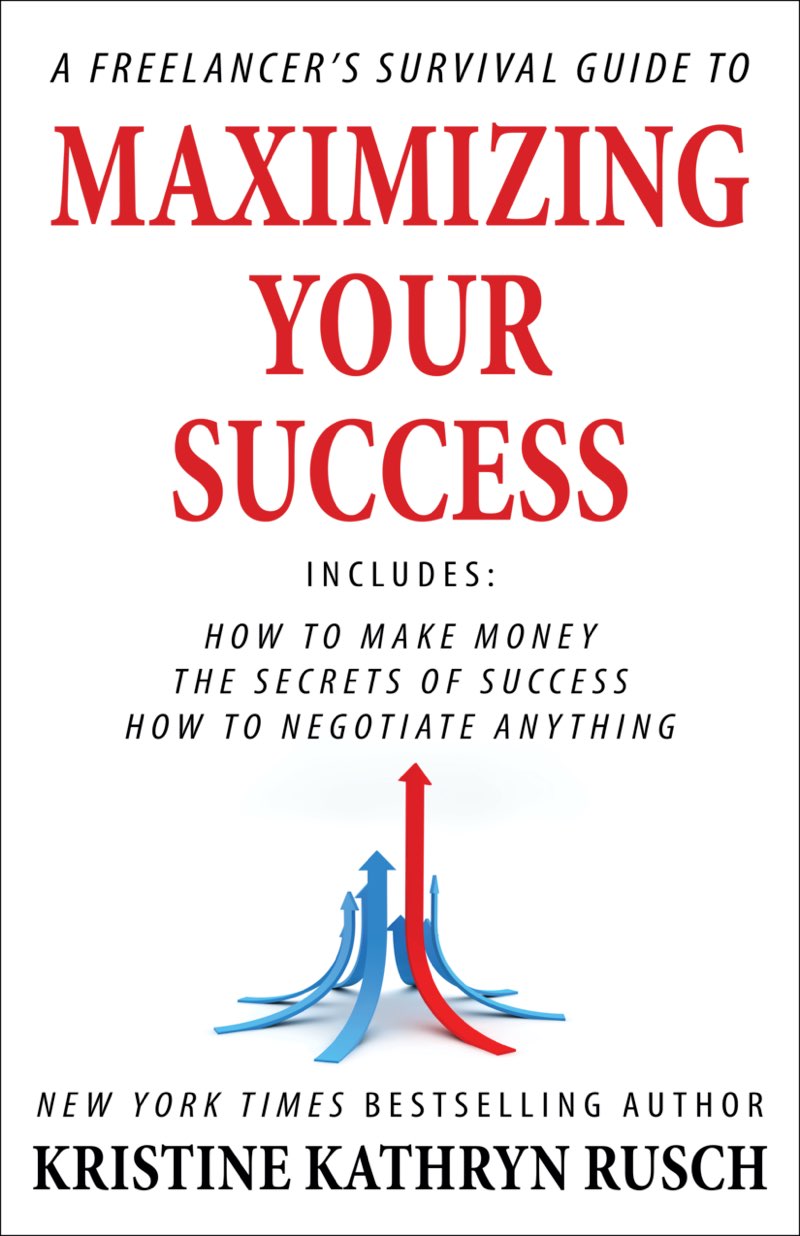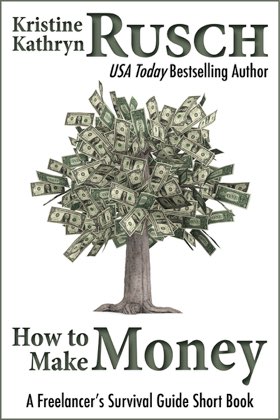Introduction
Money is a difficult topic to discuss. Most people dont want to think about it. Most of us dont know how to discuss it. Most of us consider financial information privateeven more private than our sex lives (and you know how you are, you TMI people, you).
And yet money is probably the most important topic of all for freelancers.
Because moneythe lack of it or, oddly enough, an abundance of itis the primary reason most freelance businesses fail.
Consider this: In the United States, we insist on remedial skills for our children. At a minimum, we want them to read at a high school level, to do basic algebra, and to write well enough to communicate their thoughts. They often dont achieve these minimums, which is why every president in my lifetime has had some proposal for fixing education.
No matter how education is fixedand each generation has things it must put up with from its eldersit always fails in one big important area.
American public schools do not teach money management. Some private schools do. Colleges occasionally do in their business schools. But oddly, I think, most colleges expect the business majors to have basic money management skillsand most of them do not.
Whenever my husband Dean Wesley Smith and I teach the Master Class, a class designed for professional writers who have plateaued in their careers, we begin with a financial quiz. We want to make certain that we use terms everyone understands.
The classes, composed of already established professionals, have an average age of 40. The quiz has ten questionsbasic questions such as define net worth and explain cash flow.
Most of the students fail. They get one or two questions right, and thats it.
One or two.
These are fully functional adults, many with day jobs. Most have children. Most have lived away from their parents and have managed their own finances since they were eighteen years old.
The public schools original rationale for failing to teach money management was that kids should learn how to handle money at home. Some kids do. Some get allowances to buy what they want, and when the moneys gone, its gone. Some learn how to save, either with an account or with a piggy bank. Some (if Kiplingers is to be believed) even manage their own stock portfoliosor did, before the recent economic collapse.
Most of us, however, got haphazard money management training at home. My ex-husband, for example, got an allowance. But when it ran out, his mother would just hand him a $20 to cover whatever he needed. By the time I met him, he didnt realize deep down that money was a finite commodity.
Even with that problem, however, he was better off than I was. My parents never discussed money. They encouraged fiscal responsibility, since they were both products of the Depression, and I do remember the day my mother took me to the bank to open my own savings account.
But when the school sent home a form for family information, my father refused to fill out the money sections. He wouldnt tell anyone what he earned. One of my grade school teachers made me bring the form back to my father and ask him again to fill it out.
My father scrawled None of your damned business across the form, and handed it back to me. I didnt find out what the man earned until he died, and my siblings and I made certain my mother had enough money to live on. She had more than enoughshe was happy to tell us how muchand I was a bit stunned at the amount.
I learned that by the time I was thirty, I was out-earning my father. I had always thought my parents rich. My friends thought them rich. My parents just pretended very, very well.
(The reason we didnt have a second home at the lake like my wealthier friends [my mother told me when I asked] was because we didnt want one, not because we couldnt afford one. In fact, I never once heard my parents say that we couldnt afford something. My parents left me with the impression that we could afford everything. We just didnt want very much.)
Our perceptions about moneywhat we learned from our parents, our grandparents, our friends, and the world around ushave an impact on how we handle money. Most of us just do what we were taught. We work 9 to 5, have a secure job, and pay our bills on time. If we have investments, we hire someone to take care of them for us because (we were taught) it takes specialized knowledge to handle money.
Money management has become an arcane science in American society. We all get by, but only a few hold the keys to the kingdom.
Weve seen, in the last few years, what giving the keys to that very important kingdom to people with specialized knowledge brings. It brings economic ruin and chaos.
Im smart about money. I still make mistakes (jeez, do I), but Im a very, very good money manager. Id like to tell you I was always this way.
But I wasnt.
I learned about money from the school of hard, hard, hard knocks.
Let me give you a few examples.
I married the first time at nineteen. I had never lived on my own. Youve already heard about my parents magical approach to money. I spent my eighteenth year in a private college on a full scholarshipone that paid for room, board, expenses, and tuition. I didnt want for anything that year.
I gave it all up for love. So romantic. (So dumb. My favorite prof said, Marry him after you graduate. My divorced older sister said, If you want to sleep with him, sleep with him, for gods sake. You dont need to be married for that. In my nineteen-year-old wisdom, I thought she was being cynical. I thought my professor was liberal. If only I had listened.)
The minister who performed the ceremony gave all of the starry-eyed young couples who asked him to marry them a questionnaire of his own devising. It went on for pages, and tried to ferret out compatibility.
He called us into his office two months before the ceremony, and said he had never seen such a compatible couple. Our answers matched on 80% of the questions. But, he confided, he was worried.
The only area we didnt match on at all was money. We disagreed on every single question.
He said, gently, that this could be a serious problem in the relationship, and we might want to rethink the marriage. He thought some counseling on financial issues would be in order before we said I do.
We disagreed with him.
He married us.
We divorced seven years later.
The main area of contention? Money. Not that we fought. We didnt. We just mismanaged our way into marital hell.
But the first steps in my financial education came in those years. For example, I was raised traditionally. I was taught that the man handled the financial affairs in the family, so my new husband handled the money. Until two years in, when we started bouncing checks. I learned that my ex balanced the checkbook in his head. He never wrote anything down.
I spent Christmas through New Years that year going over each and every bank statement, and balancing them by hand. Im dyslexic. Sometimes it took me four and five hours

